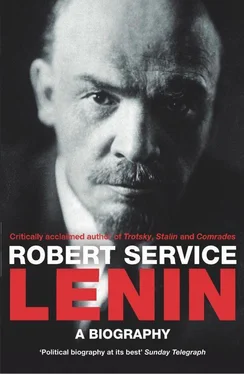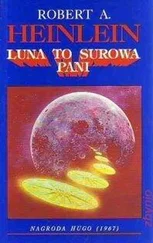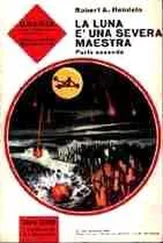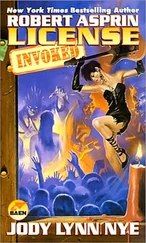Alexander Blank married a Christian, Anna Grosschopf, in 1829. Anna was a Lutheran from St Petersburg. She was of German and Swedish ancestry: her father Johann Grosschopf was a notary whose family came from Lübeck while her mother, Anna Estedt, was of Swedish background. In any case, both the parents of Anna Grosschopf were long-term residents of St Petersburg. 12This was where she met and married Alexander Blank. Since her fiancé had become a Russian Orthodox Christian, she was supposed by Imperial law to adopt Alexander’s faith as a prerequisite of the marriage. She went through the formalities; but the fact that she was to bring up her daughters as Lutherans shows that she had not really abandoned her Lutheran faith. She also stayed loyal to a number of customs not yet shared by most Russians. Germans at Christmas placed a decorated fir tree in the house. This was a custom that Anna passed down to her children and her grandchildren, who regarded it as characteristically ‘German’. 13Alexander Blank and Anna Grosschopf were assimilating themselves to a Russian national identity, but they did not take the process to its furthest possible point. Anna in particular retained traces of her ancestral past; and Alexander, while relegating his Jewish past to oblivion, did not insist that his wife should forswear her own heritage.
By continuing to adhere to Lutheranism, Anna was breaking the law. But in practice the state authorities only rarely forced Orthodox Christians to stay strictly within the bounds of Orthodoxy, and Alexander and Anna could proceed to concentrate on establishing themselves in Russian society. Alexander had a decent but unspectacular career as a doctor. He moved from post to post in St Petersburg and the provinces. His was not an untroubled career. In Perm he clashed with his professional superiors and lost his job. His appeal against his treatment failed, but he eventually secured appointment as the medical inspector of hospitals in Zlatoust and restored his reputation. With this last posting he automatically became a ‘state councillor’ and a hereditary noble. 14
But Anna’s health was frail and she died, before she was forty, in 1838; she left behind six children. There was one son, Dmitri, and five daughters: Anna, Lyubov, Yekaterina, Maria (Lenin’s mother) and Sofia. Alexander Blank could not cope on his own. He turned for help to his wife’s side of the family, and one of his wife’s sisters, Yekaterina, agreed to take her place in bringing up the children. Yekaterina von Essen – née Grosschopf – was a widow. Alexander Blank had several reasons to be pleased about her. Not only did she take responsibility for her nieces but also she had a substantial legacy and was willing to help with the purchase of the estate of Kokushkino, twenty miles to the north-east of the old Volga city of Kazan (where she had lived with her now-deceased husband Konstantin). 15The last reason is somewhat less seemly. Apparently Alexander Blank and Yekaterina von Essen were living together as man and wife soon after Anna Blank’s death. Alexander applied for permission to marry her without divulging to the authorities that Yekaterina was his deceased wife’s sister. Such a marriage was illegal, as he must have known, and the application failed. But Alexander and Yekaterina were undeterred from their liaison; they stayed under the same roof until Yekaterina’s death in 1863. 16
The Blank family resided in Kokushkino in 1848 and Alexander Blank, having retired from his medical work in Penza in the previous year, became a landowner with personal control over the lives of forty peasant males and their families. Kokushkino had a substantial manor house with two storeys and a mezzanine floor. There would be plenty of room for all the Blanks. The boy Dmitri went to the Kazan Classical Gimnazia, but the five girls were educated at home. Aunt Yekaterina supervised formal academic studies as well as the musical training, especially at the piano; her efforts were supplemented by the hire of teachers who came out from Kazan to the Kokushkino estate. The girls were brought up with a knowledge of Russian, German, French and English. Aunt Yekaterina was a very demanding taskmistress, but her nieces were to appreciate the educational benefit they received from her.
As for Alexander Blank, he had a passionate interest in hygiene, diet and dress and wrote a booklet on the advantages of ‘balneology’. 17This was a medical fashion involving wrapping up patients in wet blankets; the idea was that enclosure by water helped to prevent ill health. Blank applied the method to his young family. He disliked to hand out medicine except in exceptional circumstances, and insisted on a plain diet: the girls were not allowed tea or coffee except when they were served these beverages on visits to their neighbours. The Blank children had to wear clothes with open necks and short sleeves even in winter. 18They had reason to think, in adulthood, that they had had an idiosyncratic upbringing. 19It is true that their father also had a sense of humour; but his jokes were usually made at someone else’s expense. On 1 April, for example, he played tricks around the house. On one occasion he fooled everyone by placing powdery snow on the dinner plates. 20But usually he and Aunt Yekaterina had erred on the side of strictness. Although the girls loved their father and aunt, they were more than a little in awe of them.
Young Dmitri was intensely unhappy. In 1850, shortly after the move to Kokushkino, while he was still a student, he committed suicide. 21Exactly what upset him is still not known. It may be that his mother’s death unhinged him or that something disturbed him in his relations with his father. Perhaps he felt himself to be under excessive pressure of expectations either from his family or from his tutors. Or possibly he was simply a victim of psychological illness.
Yet life for the Blank children was generally a lot more pleasant than for the peasants on the Kokushkino estate. When the Emancipation Edict freed them from their personal ties to the newly arrived Dr Blank, they refused to accept the maximum amount of land available to them since this would have entailed their agreement to pay him compensation. Instead they opted for the scheme whereby they received a minimal amount but did not have to pay anything for it. On the neighbouring estates the peasants had taken the maximum amount on offer, and Dr Blank, a tall, thin individual with dark eyes, asked his peasants to reconsider. He warned them that they would sink into penury if they stuck to their decision. But they did not trust him. Presumably they believed the unfounded rumours circulating among the discontented peasantry that all the land was about to be transferred free of charge to those who themselves cultivated it. They lived to regret their decision. But it was too late: the Blanks would not allow them to go back on the original settlement. The troubled condition of Russian agriculture in the nineteenth century was a topic that was understood at close quarters by Blank family members – and they did not take a kindly approach.
Maria Alexandrovna Blank had been born in St Petersburg in 1835. Her husband Ilya Nikolaevich Ulyanov had come into the world four years earlier. Ilya had belonged to a commercial family in Astrakhan, where the river Volga debouches into the Caspian Sea. He was the youngest of four children; his brother was called Vasili, his sisters were Maria and Fedosya. Their father Nikolai Ulyanov was a tailor. 22Official Soviet historians claimed that the Ulyanovs lived in straitened circumstances; but there is nothing to substantiate this. Nikolai Ulyanov lived in a stone house with a wooden superstructure and his business flourished.
Although the family’s ethnic and religious background is not completely clear, Nikolai probably descended from peasants who came to Astrakhan from the upper Volga province of Nizhni Novgorod in the eighteenth century. Originally their name, it seems, was not Ulyanov but Ulyanin; such a shift in orthography was common in those years. The possibility that they came from near Nizhni Novgorod, one of Russia’s greatest cities, has given rise to the suggestion that they were Russians. Quite possibly they were. But the province of Nizhni Novgorod, like several provinces of the Volga region, was inhabited by a mixture of ethnic groups, and it cannot be excluded that the Ulyanovs belonged to one of the indigenous ethnic groups conquered by the Russian tsars in the sixteenth century. Thus the Ulyanovs could have been Chuvashes or Mordvinians. Even more obscure is their religious affiliation. If they were Russians, they may have been Orthodox Christians; but it is equally conceivable that they belonged to one or other of the local Christian sects. If Chuvash or Mordvinian, they could have been pagans or Moslems or even converted Christians. All that is beyond challenge is that Nikolai Ulyanov – Lenin’s grandfather – brought up his family as Russian Orthodox Christians and had them educated in Russian schools. 23
Читать дальше












